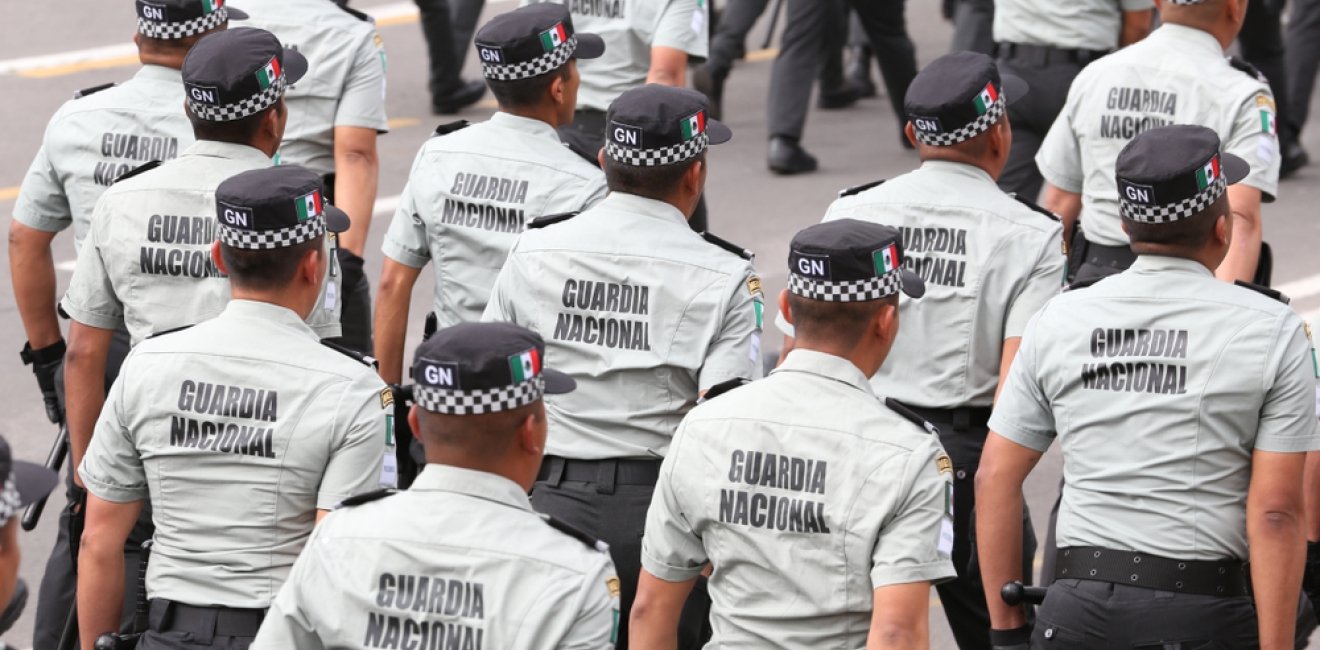
One of the most relevant and controversial constitutional reforms put forward by Mexico’s government around questions of insecurity and violence concerns the National Guard and its reincorporation to the Mexican military.
Under the proposed reform, all the operational and administrative functions of the National Guard would fully be controlled by the Secretariat of National Defense (Sedena), a change that raises serious concerns regarding human rights abuses, impunity, and abuse of force, all issues that have historically and today been associated to the military and to the militarization of public security.
The proposed reform also presents clear challenges to US-Mexico security cooperation, particularly in regard to initiatives focused on intelligence sharing, violence prevention, and human rights, not so as it pertains to more reactive and short-term bilateral initiatives around border control and immigration enforcement.
President Andrés Manuel López Obrador and President-Elect Claudia Sheinbaum have defended the control of the National Guard by the military under the premise that the military is an honest and incorruptible institution that represents the interest of “the people,” in contrast to police forces that are presented as abusive and deeply coopted by organized crime. Saliently, Sheinbaum has echoed López Obrador’s vision of the military as an institution that no longer commits abuses and that instead is devoted to protecting Mexican citizens. Evidence, however, suggests that the militarization of public security and the control of the military over the National Guard has heightened people’s exposure to violence, including women, children, and migrants, and that militarization has led to more discretionary and lethal use of force against citizens.
Furthermore, militarization has not reduced the armed power of criminal groups or the territorial control they exercise over several regions of Mexico, but has instead translated into spaces wherein the military coexist with these groups. There are several problems that this reform to the National Guard presents for the country’s challenges of insecurity and violence. First, this reform will likely contribute to the further erosion of public security provision by civilian forces: as more resources are allocated to the military, less resources are directed at state and local level police forces that need to be professionalized, better equipped, and better trained to protect and serve citizens. Secondly, militarization takes away institutional and economic resources from much-needed programs and initiatives focused on violence reduction and violence prevention, including the prevention of gender-based violence, femicides, and disappearances.
Thirdly and more generally, the status of the National Guard as a de facto and de jure military body, constitutes a further deepening of a model of security provision that moves away from peace-building, prevention, and alternative mechanisms of justice and that embraces instead a model based on war-making, repression, and punitivism. This is the route the country has taken since at least the year 2007, to the detriment of citizens’ wellbeing and with clear negative consequences for levels of violence, insecurity, and human development.
Author

Mexico Institute Global Fellow; Assistant Professor of Latin American History at George Washington University



